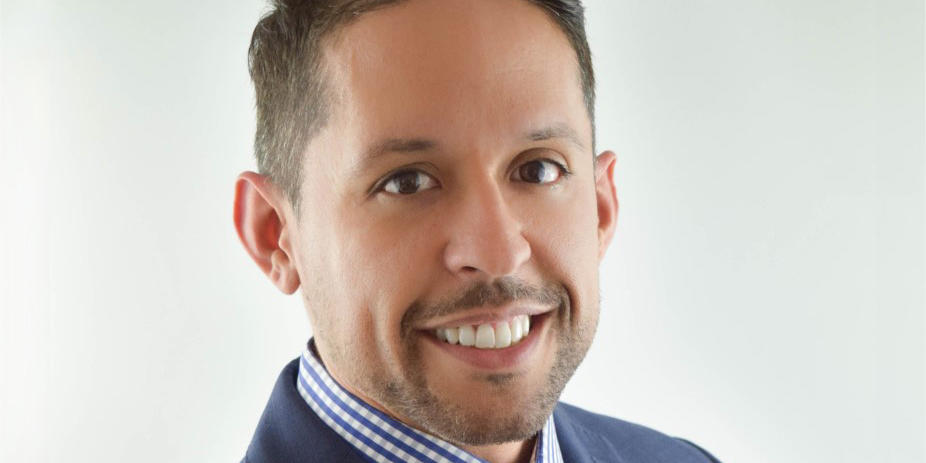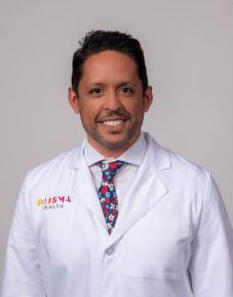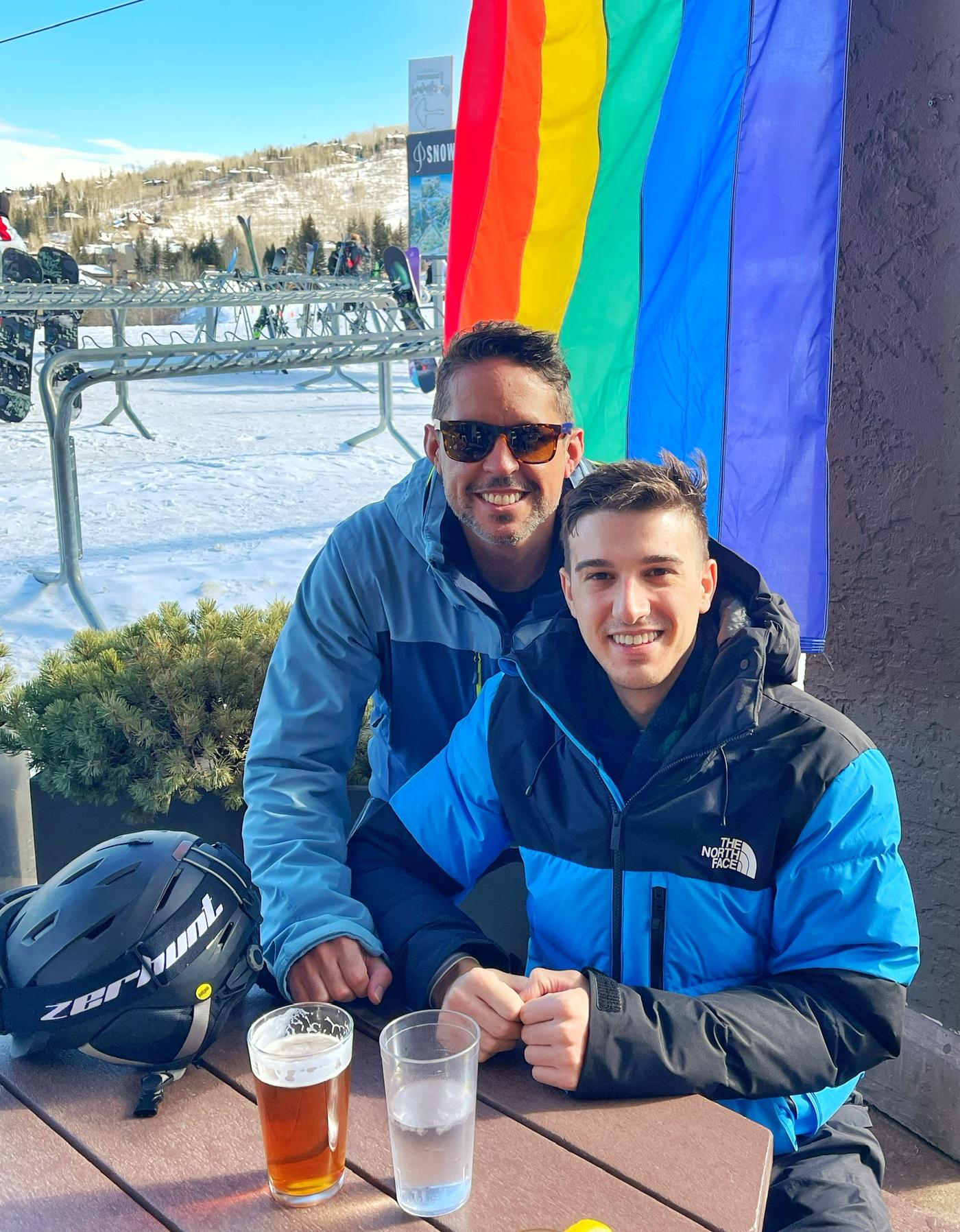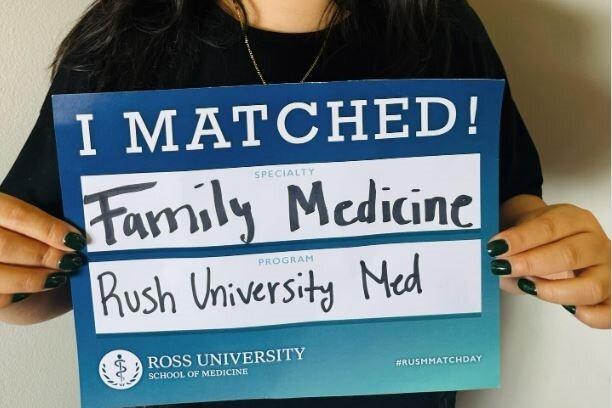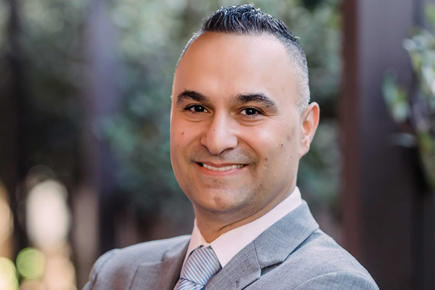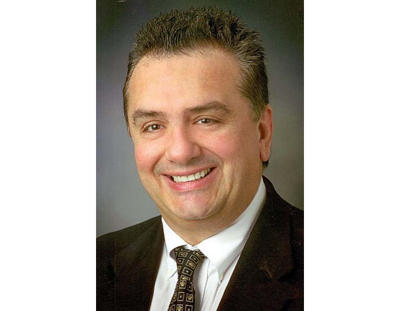June is Pride Month. It commemorates the movement for LGBTQIA+ rights in the U.S. Pride events are held every June to recognize the impact LGBTQIA+ people have had in communities nationwide and across the world.
Ross University School of Medicine supports a culture where students can bring their full, authentic selves to school, and is inclusive regardless of sexual orientation, gender identity or gender expression.
Ross University School of Medicine (RUSM) alum Joseph Hinojosa, MD,‘18, knows the struggles and triumphs of LGBTQIA+ doctors and patients. As a gay man, he has real-life knowledge of the discrimination and denial of civil rights that lesbian, gay, bisexual, transgender, queer, and intersex people face in healthcare every day. Not only does he hope to work for a more equitable healthcare system for professionals and patients, but his legacy has created a more inclusive environment for medical students at RUSM.
Discovering a preference for patient care
Born in inner-city Houston, Texas, he and a sister were raised by a single mother after his father died of cancer. After high school, Hinojosa began a period of career exploration that eventually culminated with medical school. He joined the U.S. Navy and was stationed in Japan for four years on the aircraft carrier Kitty Hawk. Afterward, he became the first college graduate in his family, completing a degree in healthcare administration. While putting himself through undergraduate school at the University of Houston, Hinojosa became a medical assistant and gained clinical experience as an emergency room technician, which inspired him to become a physician. “I saw everything from psychiatric cases to gunshot wounds. I loved the fast pace and the ability to work with patients firsthand. I realized that it wasn’t the business side of healthcare that I was most interested in—it was helping patients.”
After his stint in the ER, Hinojosa began working in dermatology at MD Anderson Hospital, where he had his first leadership experience, and later, moved on to a position at the University of Texas working on research grants for electronic healthcare records. ”I was leaning towards hospital leadership, but I knew I wanted to get back into patient care. That’s why I chose Family Medicine—I could make the decisions and have autonomy in caring for my patients. I also love learning about patients’ personal stories, and that helps dictate the way I care for them.”
A developing interest in clinical education
A non-traditional student, Hinojosa began med school at age 35. A friend who graduated from RUSM encouraged him to apply and was soon accepted to school. While at RUSM, he participated in the Academy for Teaching and Learning and took advantage of peer tutoring. “I appreciated the instructors and faculty who were always available to help with study plans and guidance.” When Hinojosa’s grandfather passed away, he used the services of the RUSM Wellness and Counseling Center. “The counselors at the Center helped me deal with a very difficult period in my life when I was determined to finish my medical degree.”
A talented clinical educator, he trained other students in clinical skills, such as folding catheter insertion and IV insertion. ”I’ve always enjoyed teaching, and that’s a big part of my residency now.” Clinical rotations at the EPIC Center for Haitian Studies in Miami, Florida, and Mount Sinai Hospital in Chicago, Illinois, enhanced his interest in Family Medicine and clinical education.
Championing LGBTQIA+ issues
Hinojosa is especially proud of his role in helping to introduce LGBTQIA+ awareness training at RUSM. “I was excited to see faculty members participate, including one surgeon who performs gender-affirming surgeries. It’s encouraging to see how RUSM is building an inclusive environment, where everyone feels part of the movement for diversity and equality—not just for LGBTQIA+ people, but for everyone.”
In addition, Hinojosa advocates for transgender patients and performed self-directed research while in residency to investigate hormone therapy to help his patients reach their goal of gender transfer. He continues to focus on gender-affirming patient care as well as HIV PrEP (Pre-Exposure Prophylaxis) in his current role as a resident at Prisma Health Care System in Greer, South Carolina. “I also created an LGBTQIA+ elective course focused on increasing awareness for the all the other residency programs at Prisma, and I am a member of the Pride Alliance, a group with 200 members, which works for legislative representation on LGBTQIA+ issues,” says Hinojosa. He recently completed a project with the American Academy of Family Medicine Emerging Leader Institute focused on connecting patients with LGBTQIA+-friendly doctors. “I’ve concentrated on building interactive resources for gay and transgender patients at Prisma, so they can have the healthcare information they need.”
Not only did Hinojosa meet many LGBTQIA+ identifying students at RUSM, but he also met a fellow student, Francesco Laterza, MD ’17, who became his husband in 2021. Both Hinojosa and his husband now practice at Prisma. ”We can even occasionally have lunch together. Everyone at the hospital knows we are married, and we feel very comfortable there.” Now a chief resident, Hinojosa sees many Medicare patients and acute cases, as well as seeing transgender patients and HIV PrEP patients.
Looking back at his days at RUSM, Hinojosa found the campus to be welcoming. “My work at RUSM to increase sensitivity on LGBTQIA+ issues led to training doctors in my residency. I’m looking forward to continuing this kind of work in my career and helping to usher in change at the institutional level. It all started at RUSM.”

